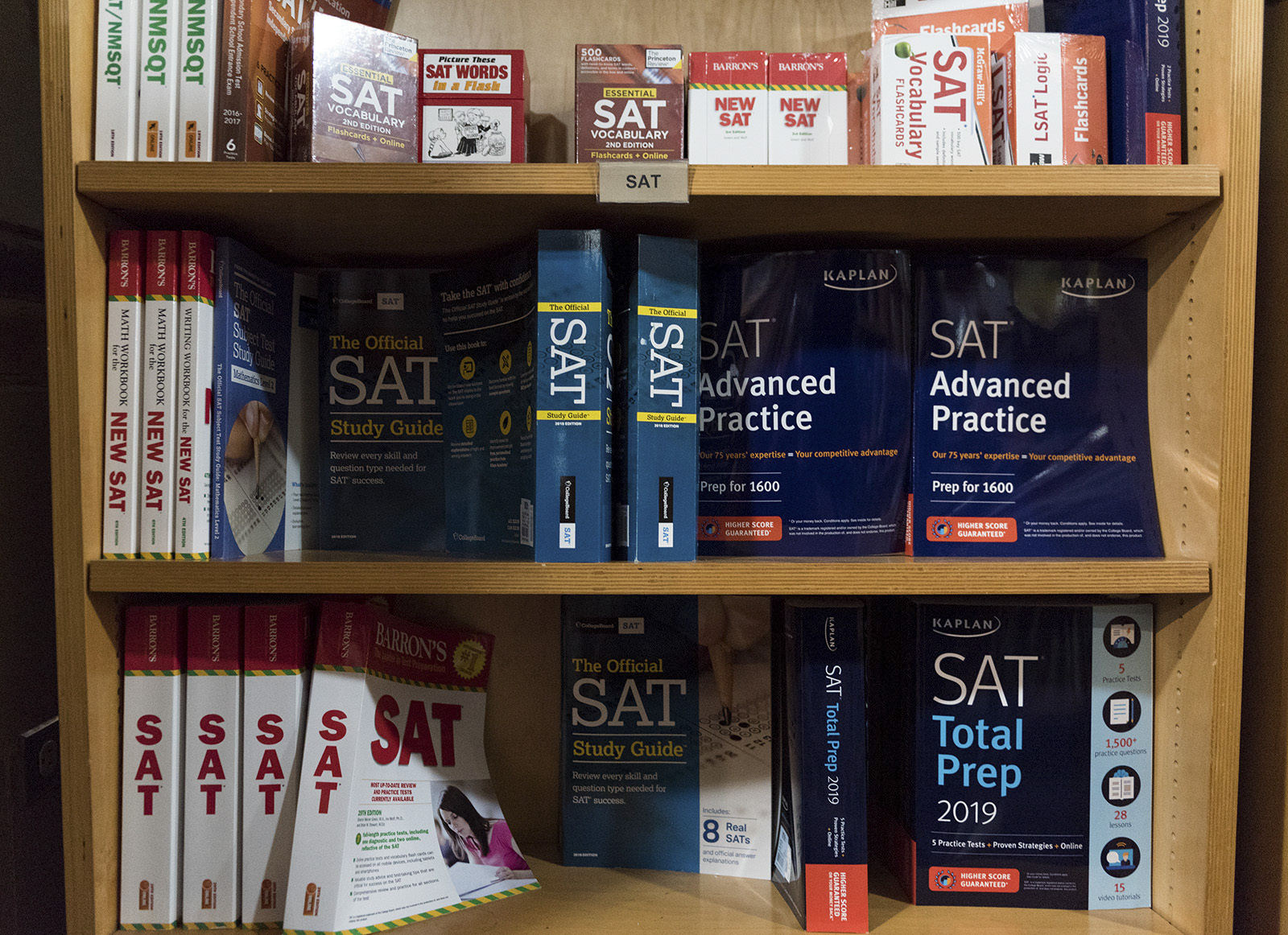College Board’s new tool Landscape to pave way toward fairer admissions practices

The College Board announced in May that it would implement the Environmental Context Dashboard, commonly known as the adversity score, to provide context on students’ socioeconomic backgrounds. However, the organization announced August 27 it will no longer implement the adversity score and instead roll out a new tool called Landscape. (Liz Ketcham/Photo editor)

By Genesis Qu
Sept. 9, 2019 12:52 a.m.
The College Board decided not to implement a new score that would provide context on students’ backgrounds following negative feedback.
The Environmental Context Dashboard, commonly known as the adversity score, was announced by the College Board in May as a way to provide context on students’ socioeconomic backgrounds to supplement SAT scores.
However, in response to feedback from educators and families, the organization announced August 27 it will no longer implement the adversity score and instead roll out a new tool called Landscape, according to a press release from the College Board.
Instead of compiling a student’s background into a singular score, Landscape will present data to colleges about each student’s high school, neighborhood, SAT scores and AP participation rates and performance. Beginning in 2020, the same information considered by admission officers will also be available to students.
According to the press release, the proposed changes would help universities be more organized and consistent in reviewing student test scores parallel to their individual backgrounds.
UCLA professors said they believe a measurement of student backgrounds could help universities serve a broader range of the U.S. population.
The Environmental Context Dashboard received significant criticism when people argued a single score would be unable to represent the myriad factors contributing to a student’s success, said Patricia Gandara, a research professor of education at UCLA.
“It’s a longstanding fact that scores on the SAT and standardized tests are very highly related to students’ background – the schools they go to, their family income and education,” Gandara said. “We’ve known that there’s a strong bias in the tests in this regard.”
Tools that factor in student backgrounds, such as the Environmental Context Dashboard, were created to make up for this bias, Gandara said.
Mitchell Chang, an education professor at UCLA, said these changes come at a time when admission practices of elite universities are being scrutinized.
“Real, legitimate concerns are being raised about whether the most selective institutions are serving the broadest population of our nation,” he said.
Chang added this was particularly visible in the admission scandals across the nation. In March, federal prosecutors charged parents for bribing exam administrators to raise their children’s test scores on college entrance exams and coaches to recruit unqualified athletes into elite colleges, including UCLA.
“(Universities’) legitimacy as a vehicle for mobility in our country is going to be challenged, so there’s a need to continue to have better tools to admit students,” Chang said.
However, Chang added institutions don’t have to use these tools that are available to them and some won’t be able to, due to the rollback of race-conscious admission policies in many states.
The University of California already considers its applicants in the context of individual backgrounds, said UCLA spokesperson Ricardo Vazquez in an email statement.
“UCLA already uses a holistic review process of all applicants to UCLA in which all of their achievements, both academic and non-academic, are considered in the context of the opportunities they have had and how fully they have taken advantage of those opportunities,” Vazquez said.
The shift from an adversity score to Landscape will have no impact on UCLA’s admission policies, Vazquez added. However, he said he thinks Landscape will provide important data that could be used to improve the admission process.
Chang said the UC, and colleges in general, have seen a shift to a landscape consideration of applicant backgrounds, particularly after the UC system was criticized for only serving certain populations.
“This didn’t make any sense because this is, after all, a public university system that should be serving as broad a spectrum of population as possible,” Chang said.
He added Landscape could be a useful tool for institutions that do not consider background in their admissions processes. When schools need to select their applicants from a national pool, Landscape would give them an in-depth local context.
Chang said while the effectiveness of these tools remains to be seen, there is a serious need to expand the tools universities can use to admit a broader range of students and serve a broader range of the population.
“And this is again, a much needed response to the perception that in universities, the rich and the powerful already have a leg up,” Chang said.


